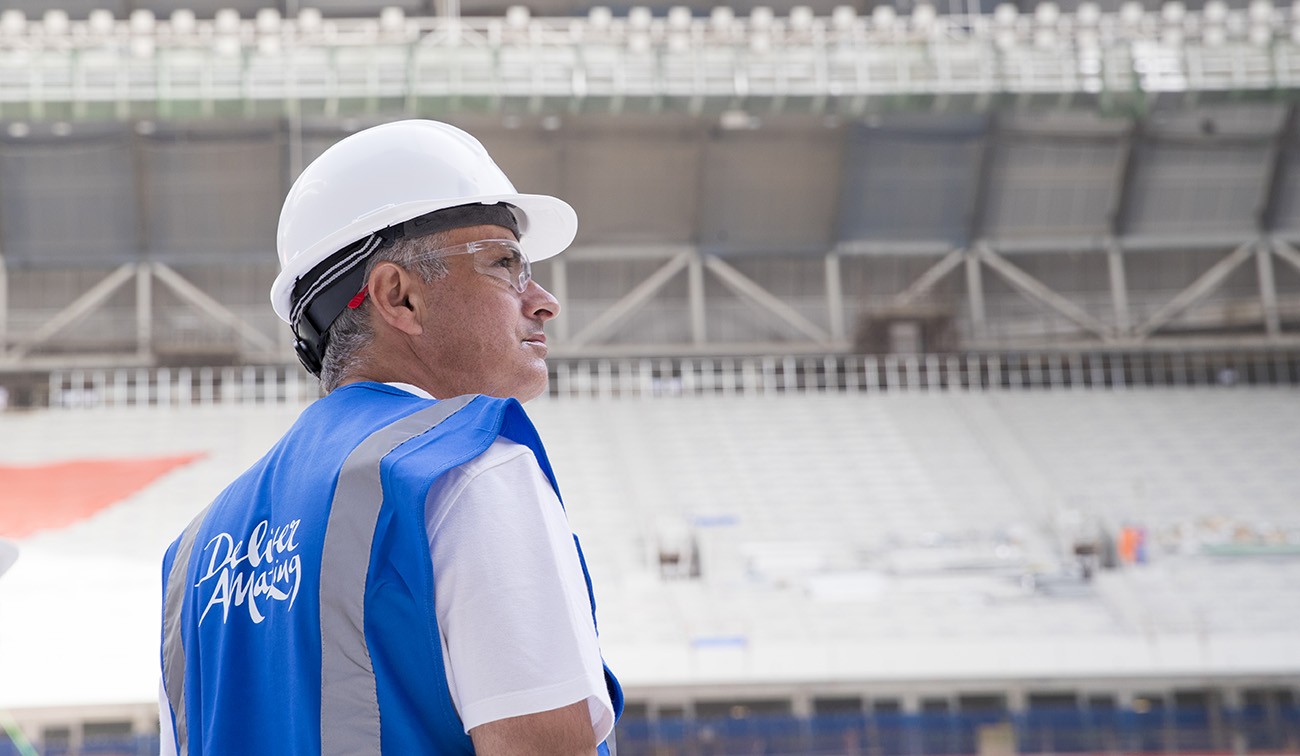.jpg)
_1-itok=GFMKQ6A9.jpg)
Jose Mourinho, one of world football's most successful and high-profile managers, visited Doha this week and received a personal tour of the Qatar 2022 headquarters with Chief of Tournament Readiness & Experience Group Nasser Al Khater.
Following the tour he spoke exclusively to sc.qa to give his thoughts on the tournament, its legacy impact, the fan experience and why he was pleasantly surprised with what he saw...
Jose, thanks for joining us and welcome to Qatar. Firstly, can I begin by asking what your first reactions are to the plans for Qatar 2022?
I'm very impressed. Knowing your country, I cannot say I am very surprised because I was expecting something amazing. But there were some question marks that a football manager can have before he understands all of the dynamic – and that is what makes me really amazed by the level of organisation. I believe that many of us in Europe, players, coaches, clubs – we had some question marks – but when you arrive here you don't have question marks anymore.
The facilities are amazing. You thought about every detail. The number of training places for all the teams, the beauty and security of all the stadiums, the short distances between every stadium, no travelling – the teams can stay for a month in the same training ground without moving. The weather won't be so hard…so I think it's going to be a fantastic event. I just hope that the football itself can give this amazing organisation what you deserve.
It will be the first FIFA World Cup™ to take place in the Arab world, and just the second in Asia. How important is it that Asia has its chance again?
After watching with incredible attention the video that you have, I realised certain things. For example, the concept of the location, the short distances for countries [to travel to Qatar] from around the world, the travelling times [for players and fans], the prime time [viewing] for so many billions because of your place in the globe.
There are many things that you don't immediately think about when an Asian country gets the World Cup, but then you realise there are so many positives.
How important do you think the legacy plans are for this tournament?
Your concept of legacy goes deep. It goes deep because so many countries invest so much in the World Cup, but then after that there are empty stadiums. No legacy; no influence of the future of other countries. You have thought so much about every detail. It looks to me like legacy is not just a word for you, but really something that you are working on.
I'm so positively surprised. I expect that [in 2022] I'm going to be a club coach, and then I will probably be not so happy that in the middle of the season my players are travelling to the World Cup, but I have to admit the event has everything to be amazing.
As a manager, how appealing do you think the compact nature of this tournament will be – and how disruptive can excessive travelling be?
Even in pre-season for us in Europe, which is a small period, we don't like to travel – we like to have a base. But because of commercial reasons, we are always travelling. We always try to reduce the travelling time, and find the right facility. I think this is going to be the first time that everyone chooses their location, their hotel, their training ground – and that will be your home until you are knocked out, or you go home with the cup. That is unreal, even at club level. It is fantastic.
And for the fans too…
For supporters it can also be something magnificent. For example in Russia you are located in Moscow, then to see the other games you have to go to Rostov, or Saint Petersburg – and you have to travel a lot. Here you can also, as a supporter, be based in a certain place and see all the matches that your team is playing.
So I see lots of positives that to be honest I was not aware of before I came.

